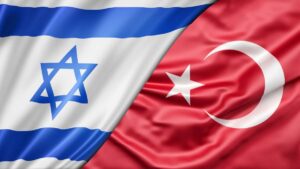
Turkish Foreign Minister Hakan Fidan announced at an emergency parliamentary session that Turkey was severing all economic and trade ties with Israel. He also confirmed that Turkish airspace would be closed to government and arms flights from Israel and that Israeli ships would be banned from entering Turkish ports. Turkish ships will also no longer be able to enter Israeli ports.
Fidan stressed that the decision itself is already being partially implemented: Turkish port authorities have begun to require ships to confirm that they are not affiliated with Israel and are not transporting weapons.
Earlier, in May 2024, Ankara suspended direct trade relations with Tel Aviv in response to its actions in Gaza.
In 2023, trade between the countries reached $7 billion. Turkey accuses Israel of genocide in Gaza, which Israel denies. Ankara has also begun preparations for humanitarian flights to deliver aid to Palestine. Fidan made this announcement, emphasizing that the president’s approval has already been obtained and that they are now waiting for permission from Jordan.
Turkey is making a decisive geopolitical shift, completely severing economic and logistical ties with Israel. The actions cover the air, sea, and trade sectors and deepen the rift in relations between the countries, highlighting the growing tensions throughout the region.
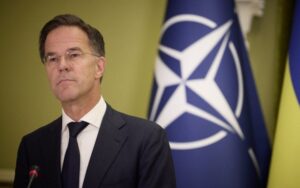
NATO Secretary General Mark Rutte announced Tuesday that the North Atlantic Alliance summit in 2026 will be held July 7-8 in the Turkish capital Ankara.
“I want to thank Turkey for organizing this important meeting. Turkey has been a loyal NATO ally for more than 70 years, making an invaluable contribution to our common security,” Rutte was quoted as saying by the organization’s headquarters.
“At our next summit, leaders will continue to work to make NATO a stronger, fairer and more effective alliance, ready to meet the critical challenges to our security,” the alliance secretary general said.
Turkey is hosting the NATO summit for the second time after Istanbul in 2004, Brussels recalled.

In July 2025, Ukrainian citizens ranked fourth among foreign buyers of real estate in Turkey, according to data from the Turkish Statistical Institute (TÜİK).
Russian citizens were the leaders in terms of the number of properties purchased, with 315 transactions. In second place were Iranian citizens (152 transactions), followed by German citizens (135 transactions).
Ukrainians purchased 134 properties in July, which allowed them to take fourth place in the ranking.
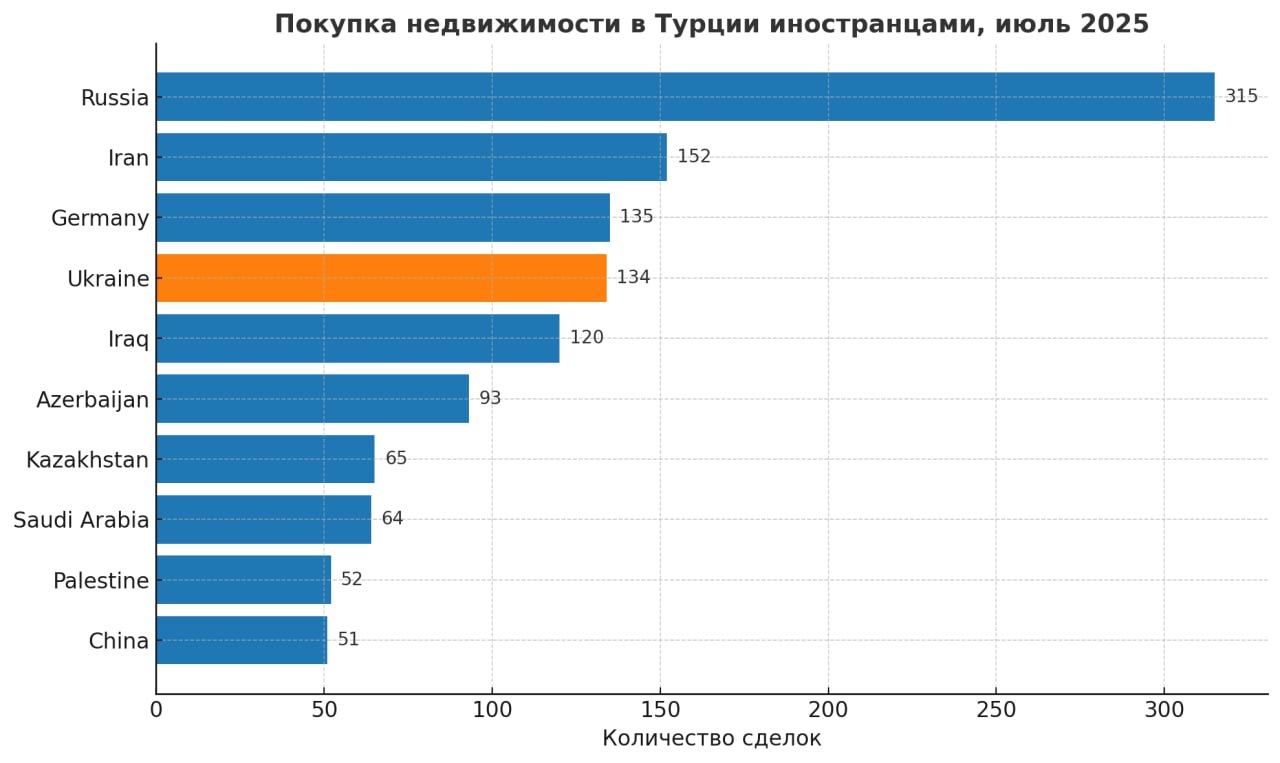
Iraqi citizens closed out the top five with 120 transactions.
The top ten also included Azerbaijan (93 transactions), Kazakhstan (65 transactions), Saudi Arabia (64 transactions), Palestine (52 transactions), and China (51 transactions).
It should be noted that a month earlier, in June 2025, Ukrainian citizens ranked second in terms of the volume of housing purchases in Turkey, second only to Russians.
According to TÜİK, the Turkish real estate market continues to attract foreign buyers, but the distribution of leaders by nationality varies significantly from month to month depending on the tourist season, price fluctuations, and investment interests.
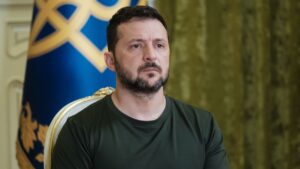
Ukrainian President Volodymyr Zelensky held talks with Turkish President Recep Tayyip Erdogan, during which the parties discussed the current diplomatic situation and the opportunities it opens up.
“President Erdogan confirmed his country’s readiness to organize a summit between the leaders of Ukraine, the US, Russia, and Turkey,” Zelensky wrote on Telegram on Tuesday.
According to him, Erdogan said that any negotiations without Ukraine would not bring stable peace.
“We all understand the risks and threats equally. A fake, rather than honest, peace will certainly not last long and will encourage Russia to seize even more territory. I noted that we are ready for any format of meeting in order to stop the killings and end the war,” the Ukrainian president added.
The parties also discussed high-level events that Ukraine is preparing during the UN General Assembly and Turkey’s participation in them.
According to the Turkish Presidency’s Twitter page, during the conversation, which took place at the request of the Ukrainian side, bilateral relations between Turkey and Ukraine, as well as regional and global issues, were discussed.
“Recognizing the valuable progress achieved in direct talks in Istanbul between Ukraine and Russia, President Erdogan expressed his hope that the next rounds of talks would yield meaningful results for a ceasefire on the path to lasting peace. Noting that Turkey is ready to host a summit at the leadership level, President Erdogan expressed his conviction that the establishment of working groups in the military, humanitarian, and political spheres will pave the way for the summit,” the statement said.
Erdogan also stressed that Turkey continues to support Ukraine’s sovereignty and territorial integrity.
As reported, last Friday, US President Donald Trump announced that his meeting with Vladimir Putin would take place on August 15 in Alaska.
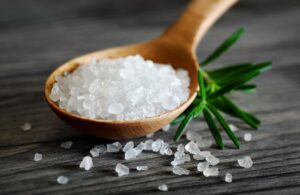
In January-June 2024, Ukraine imported 211,692 thousand tons of salt, which is 45.88% less than in the same period a year earlier, when external purchases amounted to 391,186 thousand tons.
According to statistics released by the State Customs Service (SRS), spending on salt purchases on foreign markets in the first half of 2025 decreased by 48.46% to $26.919 million, compared to $52.225 million in the same period of 2024.
The main suppliers of salt to Ukraine in January-June were Egypt, which accounted for 46.09% of supplies, worth $12.407 million, Turkey (17.57% and $4.730 million) and Romania (13.41% and $3.611 million)..
A year earlier, the top three salt suppliers were the same: Egypt (54.89% or $28.668 million), Turkey (17.15% or $8.956 million) and Romania (14.69% or $7.671 million).
As reported, Ukraine exported 710,040 tons of salt worth $28.32 million in pre-war 2021, while in 2022, exports fell fivefold in real terms to 142,038 tons, and revenues fell even more sharply to $3.82 million. The main buyers of Ukrainian salt in 2021 were Poland (39.1%), Hungary (27.4%), and Romania (7.3%). In 2021, Ukraine imported 142,810 tons of salt worth $12.92 million.
After the occupation by Russian troops in April 2022 of the country’s largest salt producer, Artemsol, Ukraine virtually stopped its exports and became a net importer.
The Tereblya salt deposit (Zakarpattia region) resumed salt production in August 2023. The head of the Zakarpattia Regional State Administration, Viktor Mykyta, said that Zakarpattia would be able to provide Ukraine with 100% of its technical and table salt.
The Dolinsky deposit (Ivano-Frankivsk region) plans to resume salt production in the near future. Work is currently underway on the Dolinsky deposit development project, and a thorough environmental impact assessment is being conducted. Specialists from the State Scientific Research and Design Institute of Basic Chemistry “Niochim” are preparing a design solution for a future salt production plant. A special permit for the extraction of rock salt (halite) in 2023 was obtained by the Kharkiv-based company “Planeta Komfort.”

In June 2025, Ukrainian citizens ranked second among foreign nationals in terms of the number of properties purchased in Turkey. This is evidenced by recent data from the Turkish Statistical Institute (TÜİK). According to the published information, Ukrainians purchased 111 properties, second only to Russians, who traditionally remain the main foreign investors in the Turkish housing market, with 326 transactions per month.
Iranian citizens came in third place (109), followed by Iraq (97), Germany (95), Azerbaijan (71), Kazakhstan (66), China (54), the United States (41), and Palestine (40).
Experts attribute the growing interest in Turkish real estate to the following factors:
Visa-free travel and well-developed air links between Ukraine and Turkey;
Relatively low entry threshold: housing prices in Antalya, Alanya, and Mersin remain attractive compared to the European market;

The possibility of using housing as a means of preserving capital and as an evacuation address in the context of the ongoing war.
In addition, in June, Turkey saw an influx of buyers from Ukraine due to the active tourist season and investors seeking rental income in foreign currency.
Despite an overall decline in real estate purchases by Russians compared to the peak values of 2022–2023, Russians once again became the largest foreign buyers in Turkey in June 2025. This confirms the continuing trend of relocation, including permanent or temporary residence, against the backdrop of Russia’s international isolation.
Given the current geopolitical conditions and the attractiveness of the Turkish market, Ukraine may maintain its high position in the ranking of foreign buyers of real estate in Turkey in the coming months. At the same time, interest from Central Asian and Middle Eastern countries is also expected to pick up.
Overall, Turkey remains one of the leading destinations for real estate investment among citizens of the post-Soviet space.